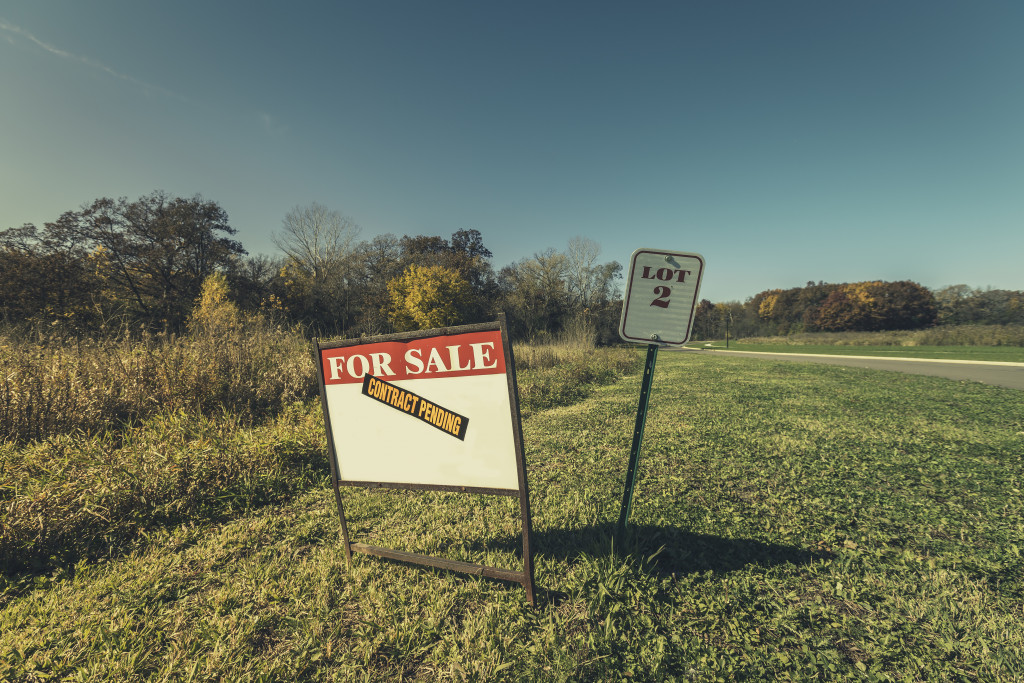It’s no secret that money matters when buying a residential lot. But what may not be obvious is how much money you’ll need to spend and where that money will come from. Here’s a breakdown of the costs associated with purchasing a residential lot, as well as some tips on how to save money during the process.
Track your budget.

When it comes to buying a residential lot, budget management is critical. Keeping your budget in mind throughout the buying process will help ensure you get the most for your money and avoid any future financial hiccups. Ensure you know what you can afford to spend, and stay within that budget.
Researching comparable properties and familiarizing yourself with local zoning laws can help create an accurate financial estimate for potential lots. You’ll also want to factor in potential hidden costs like impact fees, closing costs, utilities, or soil tests that might be associated with purchasing land. By knowing your must-haves upfront and developing a clear fiscal plan of attack, buyers will avoid falling prey to costly surprises during the sale process.
Be mindful of overspending.
With the excitement of finding the perfect lot for your dream home, it can be tempting to overspend on the initial purchase. However, understanding that other costs are associated with constructing and finishing a house is an essential factor to consider when purchasing a lot.
These costs can add up quickly and include materials, inspections, permits, design fees, labor costs, and more. Keeping a close eye on your budget helps you make better decisions throughout building a home and prevents you from overextending yourself financially or sacrificing quality for short-term cost savings.
Consider the location.
When considering a lot to purchase, it isn’t just the size of the property that matters – its location is an equally important factor. You’ll want to choose a spot in a desirable neighborhood with nearby amenities like schools, grocery stores, and entertainment options.
Additionally, investigate local crime rates for peace of mind and consider what community activities are available for friends and family. Neighborhoods with access to parks or lakes provide excellent recreational opportunities as well. Making sure the location of your new lot is well-suited for you and your family’s needs should be a top priority when house hunting.
You can research land for sale in your area online for more specific details. A real estate agent can also provide insight and advice on the process, from helping you to determine your budget to suggesting neighborhoods that fit your needs. With a bit of research and planning, buying a residential lot can be an exciting and rewarding experience!
Finally, don’t forget to check with your local municipality to ensure there are no special requirements or restrictions on the land you’re considering. The last thing you want is to purchase a lot only to find out that it was not legally zoned for residential development or that certain property features require costly renovations before construction can begin.
Consider the size.
The lot size is essential to keep in mind when building a new home, especially if you’re looking to expand in the future. If your lot isn’t big enough for a larger house or additions like garages, patios, or gardens, you may have to start from scratch with another piece of land.
Not only that but if the space is limited, it can mean compromising in other areas such as closeness to amenities and school districts. Taking this into account before committing to a particular location can help you decide whether or not it is right for you and your family in the long run.
Hire a surveyor.
When it comes to finding a good lot for your next construction project, do not underestimate the value of having it professionally surveyed. Having an expert come and look over the area ensures that you understand the full scope of what you’re getting into with your potential purchase. A surveyor can provide useful insight into factors such as hidden utility issues or difficult topographical features that can add additional cost considerations.
But most importantly, they can help ensure you don’t commit to anything that could potentially cost you much more money in the long run. By taking the time to bring in a professional surveyor before making an offer on a property, you can save yourself headaches and hassles down the road.
These are some considerations you should keep in mind when looking to purchase a lot for your next construction project. With careful planning, research, and budgeting, you can ensure that you make the best purchasing decision for your needs. Once you find the perfect spot for that house of your dreams, the rest is up to you! Good luck!

